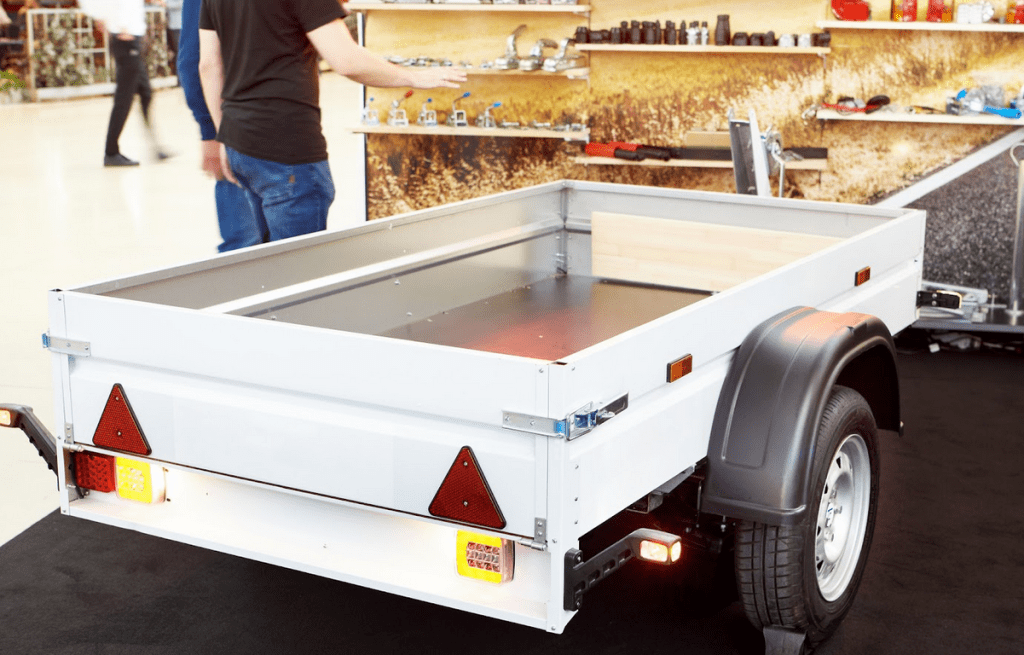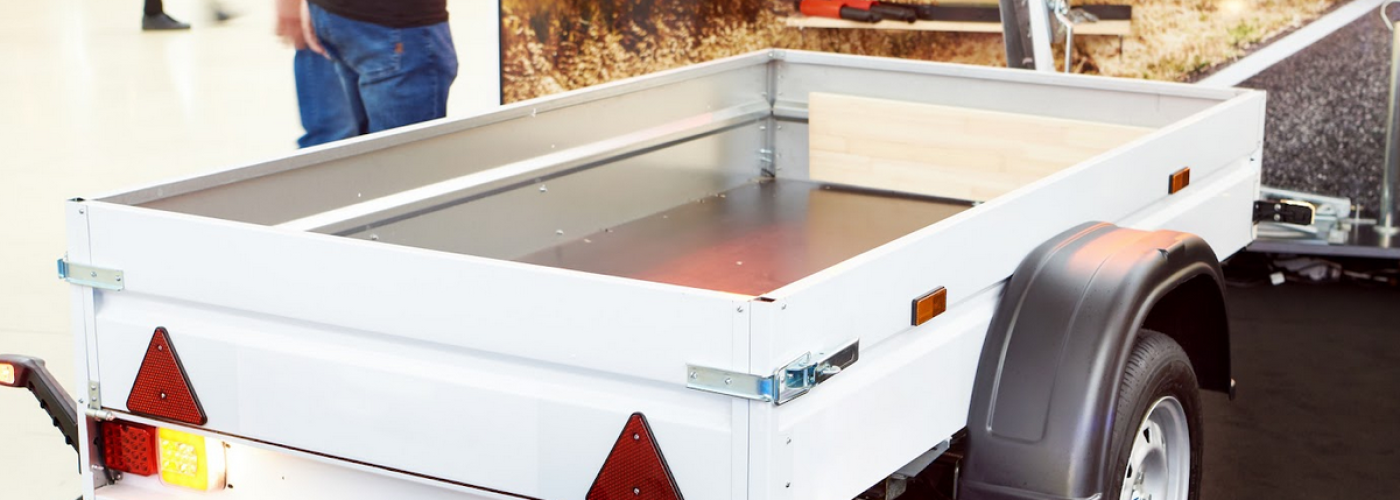Whether you’re a construction company hauling equipment across town or a landscaper transporting materials to job sites, a quality utility trailer is an essential gear. But with heavy and bulky cargo comes increased risk on the road. As reported by NHTSA (National Highway Traffic Safety Administration), around 30,000 accidents involving utility trailers occur annually. Naturally, when you’re pulling thousands of pounds behind your vehicle, safety should be your top concern.
Therefore, choosing a utility trailer isn’t just about finding the cheapest or the available option. The most critical factors are often hidden in the structural components. Keep reading to learn more about what to look for in a utility trailer to maximize safety on every haul.
- Load capacity
You’re probably already familiar with how stressful driving an overloaded pickup truck is. Now imagine that feeling with a rickety trailer swinging around at the back. Thus, you must check the trailer’s weight limits and payload capacity before loading anything. Generally, the manufacturer sets load limits based on the trailer’s size, axles, tires, and materials. Exceeding that recommended weight by even a few hundred pounds can mean disaster.
When you max out the payload capacity, you’ll feel the trailer swaying and groaning around turns. So, do yourself a favor and know exactly how much cargo you need to haul. Then, find a trailer built to handle it. You may browse through utility trailers for sale in Altoona PA, or trailer shops in your local area, and carefully check the gross vehicle weight rating per trailer.
Remember, a little planning prevents a super stressful ride that threatens your cargo, hitch, tires, and safety.
- Braking systems
Those tiny trailer brakes may seem like an afterthought compared to the big brakes on your town rig. But when you’re hauling heavy equipment or livestock at highway speeds, you need brakes that really work – your life could depend on them!
Electric and hydraulic trailer brakes are common options to research. Disc brakes tend to stop better and hold up longer than drum brakes, which can overheat and fade. It’s also recommended to avoid trailers with brakes only on the axle rather than all wheels. The best systems activate the trailer brakes in sync with the tow vehicle brakes for even, controlled stops.
Here’s a good rule of thumb: if the trailer brakes don’t make you feel confident and in control, keep looking. You can take some test drives and try to really slam on the brakes. Picture how it would feel fully loaded going downhill. Investing in advanced brakes gives you the stopping power to haul heavy loads safely and stress-free.
- Suspension
When you’re hauling equipment, livestock, or other precious cargo, you want the trip to be as smooth as possible. A rough and bumpy ride can damage your cargo and gear. Not to mention how uncomfortable it feels bouncing around back there.
The suspension is key to cushioning the load from bumps and vibrations. Torsion axles are popular because the rubber torsion bars flex to absorb shock better than leaf springs. They just perform and last longer under heavy loads. Independent suspension systems also let each wheel move separately for less swaying.
Take some trailers for a test drive on rough terrain when they’re loaded. Get a feel for how the suspension soaks up potholes and bumps. A utility trailer with a smooth, cushioned ride protects your investment and your back.
- Tires and wheels
Skimping on tires to save a few bucks can end up costing big time when you’re stranded on the roadside with a flat.
Utility trailer tires really take a beating, so invest in quality rubber rated for the loads you’re hauling. Cheaper bias-ply tires don’t handle as well at highway speeds as radial tires. Make sure to match the speed and weight rating to your trailer.
Also, don’t forget tire pressure. Underinflated tires heat up faster and can blow out. Always check pressures before loading up. For longer trips, bring a spare tire in good condition. You’ll be grateful you did if you get a flat miles from your destination.
While you’re inspecting tires, check the wheels, too. Cracked or bent wheels spell trouble. Choose solid ones specifically designed for utility trailers.
Quality tires and wheels that match your cargo needs will keep you cruising safely to job sites instead of getting stuck on the side of the road.
- LED lighting
Have you ever gotten caught loading up your trailer after dark? It’s not fun trying to hitch it up and get road-ready without enough light. Plus, driving a big trailer on dark roads is scary when other drivers can’t see you well.
Thus, it’s recommended to choose a utility trailer with LED lights all around the exterior. They put out a brighter, crisper light than basic incandescent bulbs. They also last much longer, which is handy since trailer lights take a beating.
Make sure the trailer also has brake lights, turn signals, and reflectors so other drivers can easily spot you on the road at night or in bad weather.
- Safety chains
Properly rated chains crisscrossed to cradle the trailer tongue can prevent a major accident if the hitch fails. Checking the chains before each trip can feel tedious for some, particularly if you’re in a hurry. However, taking a few minutes sure beats watching your runaway trailer crash into other innocent drivers!
Take this real-life scenario as an example and lesson. As reported by Live5News, a 24-year-old motorcycle driver was killed after being struck by a utility trailer and lawnmower that came loose from a passing truck. The investigators found out that the tongue of the utility trailer had detached from the truck’s receiver hitch ball, and there were also no safety chains. According to the same resource, about 2,000 people had died from crashes involving utility trailers, and 36 of these accidents were due to detached or defective trailer hitches.
To avoid any minor and major accidents like these, it’s recommended to invest in at least two safety chains when towing a utility trailer. Then, inspect them regularly for wear, rust, and damage. Make sure they also meet regulations for grade and length in your area. Sturdy chains are cheap insurance to avoid turning your trailer into an unguided missile down the highway.
Key takeaway
When you’re hauling heavy-duty cargo, safety must come first for your own peace of mind and everyone else sharing the road. Watch out for these key safety features and measures when picking a utility trailer. Also, always give your trailer a quick walk-around to check everything before accelerating. Your cargo, vehicle, and fellow drivers around you will thank you for putting everyone’s safety first.






